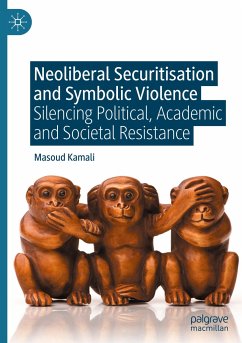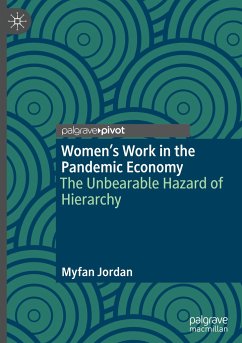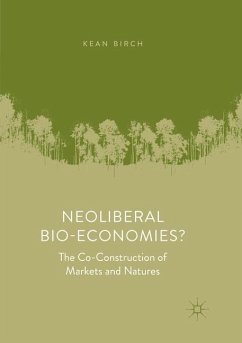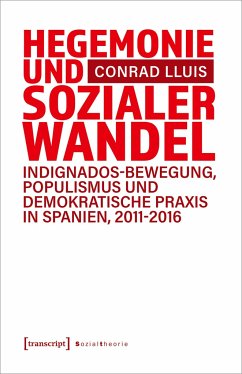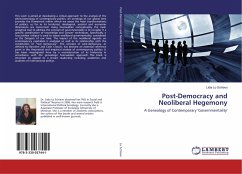
Post-Democracy and Neoliberal Hegemony
A Genealogy of Contemporary 'Governmentality'
Versandkostenfrei!
Versandfertig in 6-10 Tagen
25,99 €
inkl. MwSt.

PAYBACK Punkte
13 °P sammeln!
This work is aimed at developing a critical approach to the analysis of the phenomenology of contemporary politics. An ontology of our global time provides the framework within which we assess the main transformations of politics, as far as its territorial, ideological, societal and economic dimensions are concerned. Using foucauldian conceptuality, the main analytical tool to address the concept of governmentality is to consider it a specific combination of knowledge and 'power' techniques. Specifically, a foucauldian critique is used to assess neoliberal govermentality, considered as the Zei...
This work is aimed at developing a critical approach to the analysis of the phenomenology of contemporary politics. An ontology of our global time provides the framework within which we assess the main transformations of politics, as far as its territorial, ideological, societal and economic dimensions are concerned. Using foucauldian conceptuality, the main analytical tool to address the concept of governmentality is to consider it a specific combination of knowledge and 'power' techniques. Specifically, a foucauldian critique is used to assess neoliberal govermentality, considered as the Zeitgeist of our time. The impact of the neoliberal agenda on contemporary capitalism is analyzed as well as its relationship with the constitution of "real democracy". The concept of post-democracy, as defined by Rancière and Colin Crouch, has become an essential reference point in the theoretical and empirical analysis of contemporary politics. It has been investigated here by a reconstruction of its historicity in accordance with the genealogic foucauldian approach. This book is intended to appeal to a broad readership including academics and students of international politics.




